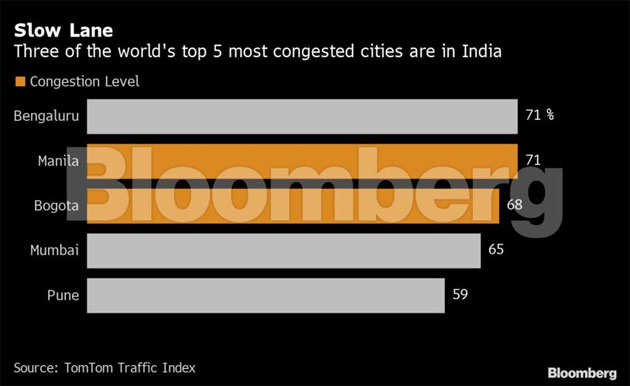By Ronojoy Mazumdar
Work from home may remain part of the norm for many in India’s financial industry beyond the end of the world’s biggest lockdown. The reason: elimination of lengthy commutes in the past three months has boosted employee productivity. Take Jefferies’ India team for example. On average, its 60 members have managed to save over an hour every day on commute and 70% of them have seen higher productivity, according to a note from the brokerage, drawing on a survey of its staff.
As banks and asset managers around the world try to figure out how they’ll manage their offices after the coronavirus pandemic, many in Mumbai – India’s finance hub – see the opportunity for permanent change in how they work. The average commute time on the city’s major routes is over an hour, more than twice the averages of Singapore, Hong Kong and New York, according to a study by the IDFC Institute, a public policy think-tank.
Neil Parikh, chief executive officer of Parag Parikh Financial Advisory Services, like many others is finding the experience better than expected – so much so that he’s reconsidering plans of adding to the money manager’s offices in India’s top cities. He plans to equip new hires with laptops and high-speed Internet connections instead. “Now there’s no stigma around working from home,” he said. “I can see some from my research team being much more productive. Working from home saves almost 3-to-4 hours everyday in travel time for some people.”
Bloomberg

Reliance Securities Ltd. has shelved plans to shift to a new premise. The firm, one of India’s leading retail broking houses, will have half its staff continue to work from home as it implements a rotational program to comply with social distancing norms, according to Chief Human Resource Officer Meenaa Sharma. “Many of our employees are saying that their productivity has gone up, and feedback from clients on research reports is good,” she said.
Second Wave
While the daily number of virus cases in Mumbai, India’s worst-hit city, has been stable in recent days, concerns over a second wave means businesses have little choice but to operate remotely. With economy set for its first full-year contraction in 40 years, India has begun reopening from the lockdown imposed on March 24 even as the country has the fourth-highest number of infections in the world.
Yet, not everyone in the world of finance is in a position to work remotely on a long-term basis. While banks and stock depositories had been open through the lockdown, designated as ‘essential services’, dealers who execute trades may have to return to office in greater numbers once regulatory relaxations are rolled back. “Businesses like ours where there’s sensitivity of information, at least some part of staff like dealers have to be in the office” said Jinesh Gopani, head of equities at Axis Asset Management Co. “Those parts were allowed at home because it was a crisis. But it is not ideal from the regulator’s point of view in the long term.”
For now, only a fraction of the staff in the financial-services industry is back in office. The unexpected benefits of working remotely mean it’s likely to be a favored option well into the future. “Productivity has improved dramatically because of removing unproductive travel time,” said Gopani. Working from home one or two days a week may become ‘the new normal’.






